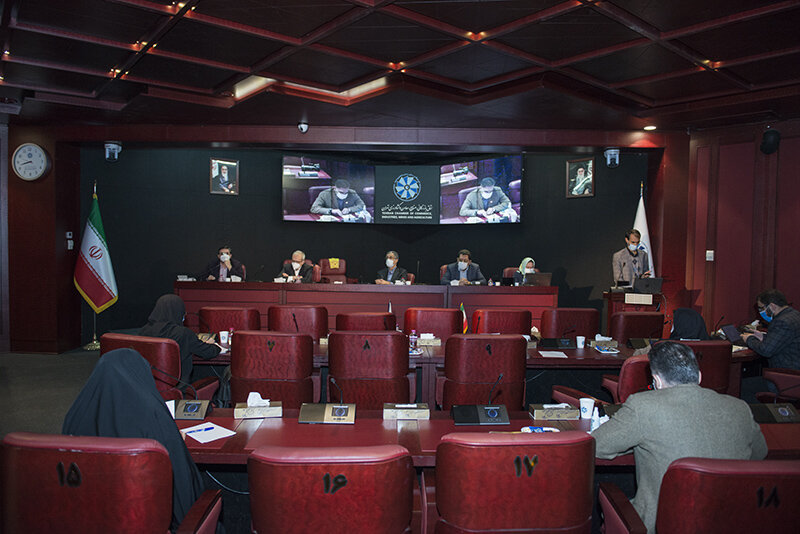TCCIMA calls for easing forex policies to support exports

TEHRAN - The board of Representatives of the Tehran Chamber of Commerce, Industries, Mines and Agriculture (TCCIMA) in their 17th meeting on Tuesday stressed the need for easing the country’s forex policies to support the exporters and boost foreign trade.
In the meeting, which was held through video conference, the participants discussed the Central Bank of Iran (CBI)’s foreign exchange policies and their impact on foreign trade, and also the recent developments regarding China’s “One Belt One Road” initiative which is aimed at reviving the Silk Road and expand trade in the region.
As reported by the TCCIMA portal, speaking in the event, the Deputy Industry, Mining and Trade Minister for Industry Affairs Mehdi Sadeqi Niaraki pointed to recent changes in the CBI’s policies regarding the return of export revenues and stressed that the CBI has considered easier ways for the re-injection of the mentioned revenues which will encourage exporters and lead to the development of foreign trade.
“The Industry Ministry, in collaboration with the central bank, has also taken immediate action to facilitate the allocation and provision of foreign exchange for the clearance of the raw materials and machinery for production units that were suspended in the country's customs, and finally new instruction in this regard has been approved by the government and will be effective soon,” he added.
The TCCIMA Head Masoud Khansari for his part mentioned the recent condition in the U.S. and said: “We should use this opportunity to improve our relations with other countries and while conducting an economic reform inside the country."
He further pointed to the government’s export policy packages in the current year and said: "In the past two years, the Tehran and Iran Chambers of Commerce have raised and followed many discussions in this regard and we hope to reach positive results soon."
Central Bank of Iran offers the country’s exporters and importers foreign currency with official rates and expects them to return the equal of the currency that they have received into the country’s economic cycle.
Based on the CBI regulations for the returning of the export revenues, exporters with annual exports of three to ten million euros are obliged to offer 70 percent and those with exports of above 10 million euros per annum must offer 90 percent of the received foreign exchange at NIMA within a four-month period following their exports.
Representatives of the private sector, however, have repeatedly criticized CBI’s strict policies in this regard, calling them counterproductive and the CBI on the other hand claims that the private sector is not fulfilling its commitments regarding the return of foreign currency earnings into the country’s economy.
EF/MA
Leave a Comment